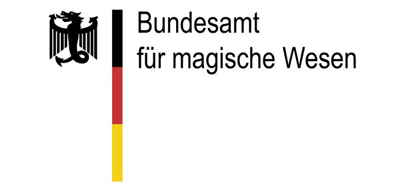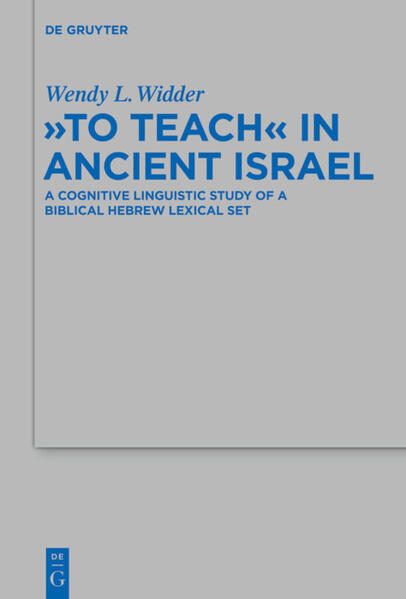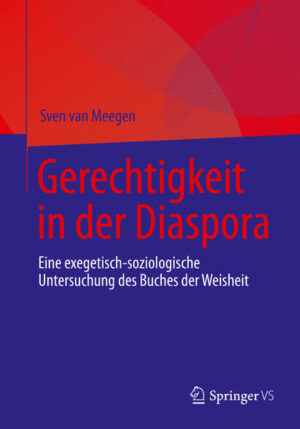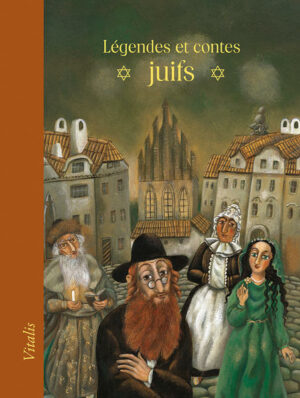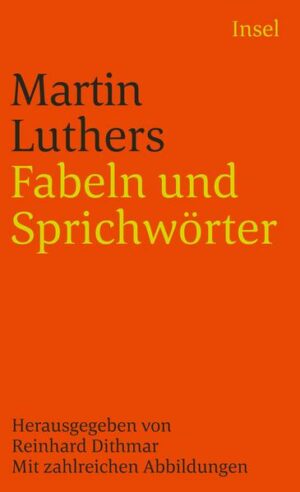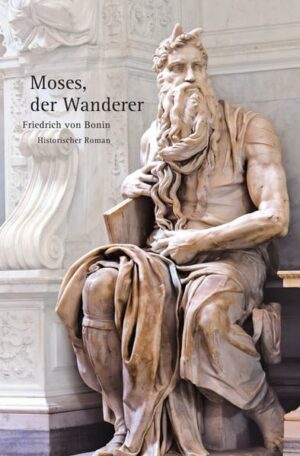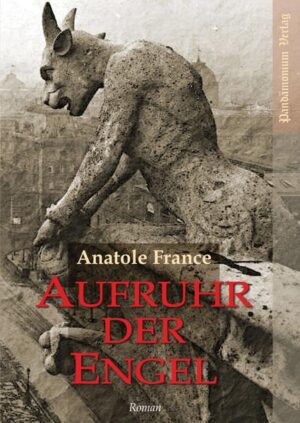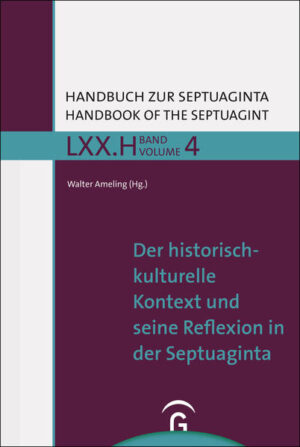- Hardcover : 238 Seiten
- Verlag: De Gruyter
- Autor(en): Wendy L. Widder
- Auflage: 1. Auflage, erschienen am 20.01.2014
- Sprache: Englisch
- ISBN-10: 3-11-033549-2
- ISBN-13: 978-3-11-033549-1
- Vom BAfmW empfohlenes Alter: ab 17 Jahren
- Größe: 23,0 x 15,5 cm
- Gewicht: 498 Gramm
„To Teach“ in Ancient Israel: A Cognitive Linguistic Study of a Biblical Hebrew Lexical Set
104,95 €
inkl. 7 % MwSt. zzgl. Versandkosten
Lieferzeit: Print-on-demand

BONN (BAfmW) – This book employs cognitive linguistics to determine the foundational elements of the ancient Israelites’ concept of teaching as reflected in the text of the Hebrew Bible and Ben Sira. It analyzes four prominent lexemes that comprise a lexical set referring to the act of teaching: ירה-H, למד-D, ידע-H, and יסר-D. The study concludes that, in its most basic form, the concept of teaching in ancient Israel was that a teacher creates the conditions in which learning can occur. The methodology employed in this project is built on a premise of cognitive studies, namely, that because teaching is a universal human activity, there is a universal concept of teaching: one person A recognizes that another person B lacks knowledge, belief, skills, and the like (or has incomplete or distorted knowledge, etc.), and person A attempts to bring about a changed state of knowledge, belief, or skill in person B. This universal concept provides the starting place for understanding the concept of teaching that Biblical Hebrew reflects, and it also forms the conceptual base against which the individual lexemes are profiled. The study incorporates a micro-level analysis and a macro-level analysis. At the micro-level, each lexeme is examined with respect to its linguistic forms (the linguistic analysis) and the contexts in which the lexeme occurs (the conceptual analysis). The linguistic analysis considers the clausal constructions of each instantiation and determines what transitivity, ditransitivity, or intransitivity contributes to the meaning. Collocations of the lexeme, including prepositional phrases, adverbial adjuncts, and parallel verbs, are evaluated for their contribution to meaning. The conceptual analysis of each lexeme identifies the meaning potential of each word, as well as what aspect of the meaning potential each instantiation activates. The study then determines the lexeme’s prototypical meaning, which is profiled on the base of the universal concept of teaching. This step of profiling represents an important adaptation of the cognitive linguistics tool of profiling to meet the special requirements of working with ancient texts in that it profiles prototype meanings, not instantiations. In the macro-analysis, the data of all four lexemes in the lexical set are synthesized. The relationships among the lexemes are assessed in order to identify the basic level lexeme and consider whether the lexemes form a folk taxonomy. Finally, the profiles of the four prototype meanings are collated and compared in order to describe the ancient Israelite concept of teaching. The study finds that the basic level item of the lexical set is למד-D based on frequency of use and distribution. In its prototypical definition, למד-D means to intentionally put another person in a state in which s/he can acquire a skill or expertise through experience and practice. In contrast to this sustained kind of teaching, the prototypical meaning of ירה-H is situational in nature: a person of authority or expertise gives specific, situational instruction to someone who lacks knowledge about what to do. The lexemes יסר-D and ידע-H represent the most restricted and the most expansive lexemes, respectively: the prototypical meaning of יסר-D is to attempt to bring about changed behavior in another person through verbal or physical means, often to the point of causing pain; the prototypical meaning of ידע-H is that a person of authority causes another person to be in a state of knowing something from the divine realm or related to experiences with the divine realm. The study determines that while the four lexemes of the Biblical Hebrew lexical set “to teach” have significant semantic overlap, they cannot be construed in a folk taxonomy because the words are not related in a hierarchical way.
Über „“To Teach“ in Ancient Israel: A Cognitive Linguistic Study of a Biblical Hebrew Lexical Set“
Das Bundesamt für magische Wesen weist den gemeinen Bürger und die gemeine Bürgerin draußen im Lande darauf hin, dass „“To Teach“ in Ancient Israel: A Cognitive Linguistic Study of a Biblical Hebrew Lexical Set“ von Wendy L. Widder für Leser und Leserinnen Jahren deutliche Spuren von Religion und Aberglauben enthält. Es unterliegt den Regeln der FMSK zum Schutz der (nicht-)magischen Jugend und Allgemeinheit vor geweihten Röckchenträgern.
Es erschien am 20.01.2014 im/bei De Gruyter.

Das Bundesamt für magische Wesen kommt mit dem Hinweis auf „“To Teach“ in Ancient Israel: A Cognitive Linguistic Study of a Biblical Hebrew Lexical Set“ seinem Bildungsauftrag nach, die Eltern junger Vampire, Dämonen, Elfen sowie weiterer Pubertiere auf die Gefahren hinzuweisen, die von Religion, religiösen Institutionen und dem organisierten religiösen Verbrechen ausgeht.
Religion und Drogen gefährden gleichermaßen die geistige, seelische und körperliche Unversehrtheit von Kindern und Jugendlichen. Das Amt weist bei dieser Gelegenheit betroffene Familienangehörige auch auf Therapie- und Aussteigerprogramme für sog. „Religiöse“ hin, die dafür bekannt sind, das Leben harmloser schwuler Vampire und gut integrierter Werwölfe zur Hölle zu machen.
Lesen Sie Bücher von Wendy L. Widder nur zusammen mit Ihren Kindern!

Brutale religiöse Geschichten über Hexenverbrennung, Jünglinge in Feueröfen, Kreuzigungen im Namen von Vätern, die sich nicht um ihre Söhne kümmern, Kreuzzüge sowie andere kirchliche Horrorgeschichten können bei Kindern und Jugendlichen schwere Alpträume, Ängste und Depressionen verursachen. Lassen Sie Ihren Nachwuchs lieber sein Modelpotential bei einem Fantasyshooting als Werwolf, Vampir oder Dämon testen.
Ebenso traumatisierende Begegnungen mit religiösen Gefährdern wie Joachim Kardinal Meisner und den geweihten Röckchenträgern des organisierten religiösen Verbrechens aus dem Katholischen Staat und dem Evangelikalen Emirat.

Sie sind stets willkommen im Bundesamt für magische Wesen in Bonn, der Stauhauptstadt von Nordrhein-Westfalen. Dort gibt es viele gute Fantasyromane und andere spannende Romane zum Träumen. Außerdem bekommen Sie dort erste Hilfe bei einer Infektion mit den Legionellen Christi und Beratung! Religion ist heutzutage wirklich heilbar! Niemand muss heutzutage mehr an Religion erkranken.
| Gewicht | 498 g |
|---|---|
| Größe | 23 × 15,5 cm |
Marke
De Gruyter
Das könnte dir auch gefallen …
-
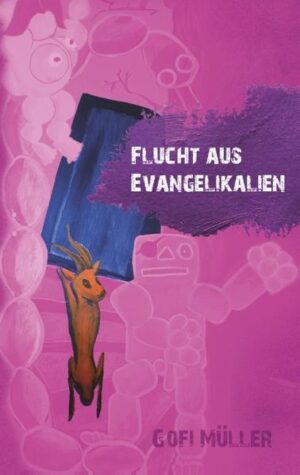
Flucht aus Evangelikalien: Über Gott, das Leiden und die heilende Kraft der Künste
9,99 €inkl. 7 % MwSt.
zzgl. Versandkosten
In den Warenkorb -

Die Angstprediger: Wie rechte Christen Gesellschaft und Kirchen unterwandern
16,99 €inkl. 7 % MwSt.
zzgl. Versandkosten
In den Warenkorb -

Loverboys 146: Doktorspiele in Sankt Blasius
12,99 €inkl. 7 % MwSt.
zzgl. Versandkosten
In den Warenkorb -
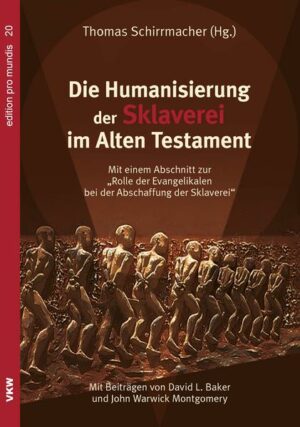
Die Humanisierung der Sklaverei im Alten Testament: Mit einem Abschnitt zur „Rolle der Evangelikalen bei der Abschaffung der Sklaverei“
12,00 €inkl. 7 % MwSt.
zzgl. Versandkosten
In den Warenkorb -

Loverboys Classic 14: Der Neue im Kloster
12,95 €inkl. 7 % MwSt.
zzgl. Versandkosten
In den Warenkorb -

Loverboys Classic 17: Unkeusche Klosterschüler
7,99 €inkl. 7 % MwSt.
zzgl. Versandkosten
In den Warenkorb
